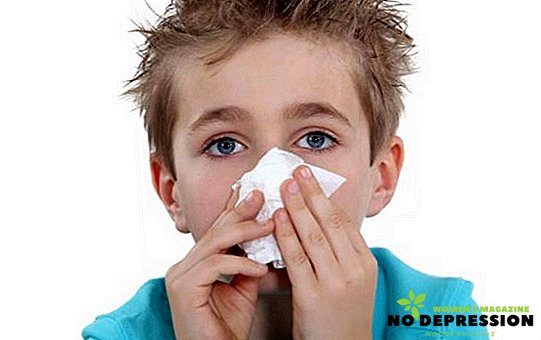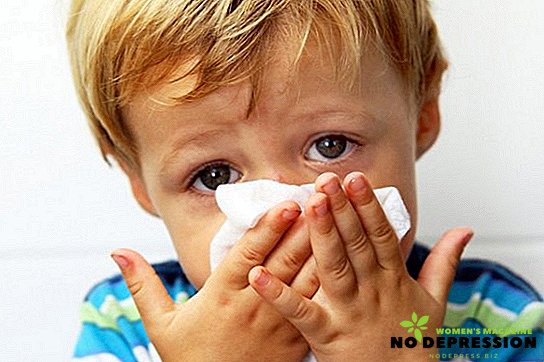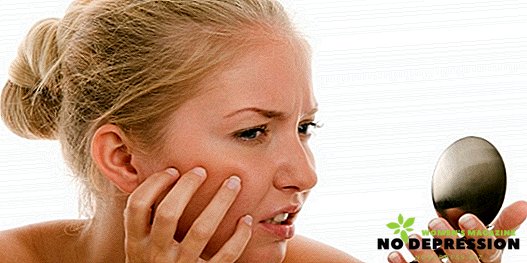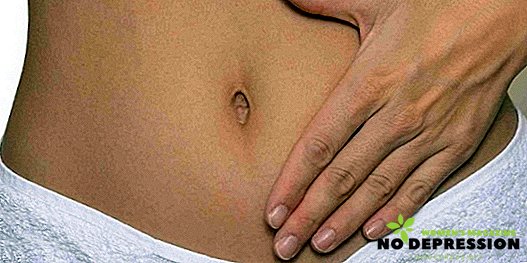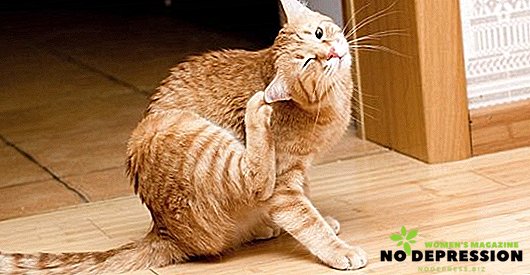Afobazole is a sedative that is intended for long-term use. It is used for various nervous disorders, and you can buy it in a pharmacy without a prescription. Before you begin a course of treatment, you should consult with a specialist, because the human psyche is an extremely subtle mechanism.
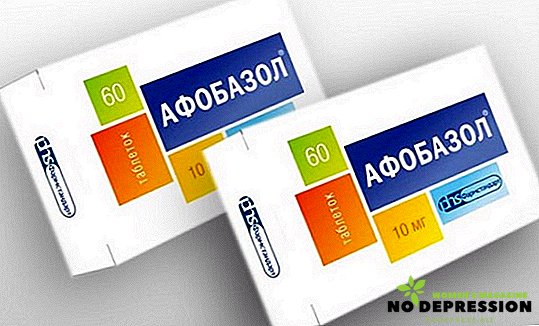
The principle of operation and basic properties
The drug belongs to the group of anxiolytics, i.e. psychotropic drugs with a sedative and antipsychotic effect. It is used to reduce anxiety, improve sleep, reduce aggressiveness in light forms of neurosis.
The principle of the drug is the effect on the receptors for γ-aminobutyric acid (GABA). This substance is a inhibitory mediator, and Afobazol enhances the receptor susceptibility to it. Thus, the normal processes of inhibition are restored in the brain, which balances the excess excitability.
Receptors that are affected by the drug are located in the areas of the cortex that are responsible for fine motor skills, memory, and emotions. Due to the neuroprotective action and the normalization of inhibitory processes, Afobazol can also have a slight stimulating effect. It manifests itself with regular intake - after reducing the level of anxiety, sleep normalizes, the patient feels rested, working capacity increases, his mood improves.
The drug is not addictive, but shows maximum effectiveness only with regular use.
The duration of the course should be checked with the doctor. It effectively fights suspiciousness, anxiety, instability of mood, increased vulnerability and sleep disorders.
Description of the dosage form and composition
The main active ingredient of the drug is afobazole. This anksisolitik (tranquilizer), belonging to the non-benzodiazipin group. The classification of anxiolytic drugs is based on the type of receptors on which they act. For Afobazol, the main target is GABA-ergic receptors. The impact on them is softer, which gives fewer side effects than treatment with benzodiazipine drugs.
The drug is available in tablets intended for use during the course. In addition to the main substance, the tablet contains auxiliary components - potato starch, cellulose, magnesium stearate and other means necessary for the tablet to be convenient for use and easily digested.
Instructions for use
 The drug Afobazol prescribed for the following disorders:
The drug Afobazol prescribed for the following disorders:
- anxiety states, including neurosis and obsessive anxiety, as well as those caused by somatic diseases (IHD, dermatitis, etc.);
- sleep disorders caused by anxiety disorders;
- cardiopsychoneurosis;
- cyclical syndrome in women;
- withdrawal syndrome;
- various dependencies.
The drug can be used with a subjective feeling of increased anxiety, insomnia, suspiciousness and hypochondria. For those who decide to prescribe a medicine for themselves, it is especially important to follow the instructions.
Tablets are taken orally after meals. A single dose is 10 mg (this is 1 tablet of 10 mg each or 2 tablets of 5 mg). You need to drink Afobazol three times a day at approximately regular intervals. Strict compliance with the intervals is not necessary, but desirable. The duration of treatment is from 2 to 4 weeks (about 1 pack of tablets).
The doctor can change the mode of admission, depending on the characteristics of the course of the disease in a particular patient. It is not recommended to extend the course for more than 4 months. If taking Afobazol does not bring relief, the patient should consult a doctor to select another drug.
Contraindications and side effects
Unlike most benzodiazipine anxiolytics, Afobazol has a fairly small number of side effects and contraindications. Nevertheless, there are a number of situations in which you cannot drink this drug. These include:
- intolerance to the components of the drug;
- intolerance of sugars - monosaccharides, galactose;
- galactosemia;
- children and adolescents (up to 18 years);
- pregnancy and lactation.
For kidney diseases that are accompanied by a decrease in glomerular filtration, it is necessary to reduce the dosage.
Side effects are most often manifested in the form of allergic reactions - pruritus, rash, rhinitis, vascular pathologies. Short-term digestive disorders are possible - abdominal pain, nausea and vomiting.
Overdose develops with a single dose of 40-50 mg and more. It manifests drowsiness, decreased motor activity, apathy, fatigue. Severe cases of poisoning are rarely recorded and are manifested by depression of consciousness, a significant decrease in muscle tone, a drop in blood pressure. In such cases, prescribed injections of caffeine sodium benzoate, which are held in the hospital.
Which is better: Afobazol or ...
In pharmacies, you can find a lot of over-the-counter sedatives, from herbal extracts (valerian, motherwort, peony) to synthetic drugs such as Afobazole. How to make a choice?
Tenoten
Tenoten contains purified antibodies to S-100 protein produced in the brain. The medicine is homeopathic, nevertheless it is quite popular, although its effectiveness is controversial in many ways. Available in tablets.
Appointed with the same diseases as Afobazol, but does not have a sedative effect, only anti-anxiety. Unlike Afobazol, it is available in two dosage forms - for adults (from the age of 18) and for children (from the age of 3, children's Tenoten). It has the same list of contraindications as Afobazol - intolerance and disorders of carbohydrate metabolism. Side effects with proper use do not develop.
With mild anxiety disorders, there are no significant differences in efficacy, they appear with relatively serious illnesses, in this case Afobazol is more effective than Tenoten.
Persen
 Persen is a combination of herbal extracts, which is available in pill form. The effect is sedative, anti-anxiety and antispasmodic. Because of the latter, Persen is more effective in vegetative-vascular dystonia, vascular tone disorders, and migraines.
Persen is a combination of herbal extracts, which is available in pill form. The effect is sedative, anti-anxiety and antispasmodic. Because of the latter, Persen is more effective in vegetative-vascular dystonia, vascular tone disorders, and migraines.
Unlike Afobazol, it has a longer list of contraindications - it is more common for allergies, should not be taken by patients with liver and kidney diseases, and used with caution in the pathologies of carbohydrate metabolism.
Persen is valid for children over 12 years old, but unlike Afobazol, it cannot be used for arterial hypotension (Afobazol does not affect blood pressure).
Phenibut
The active ingredient Phenibut is γ-amino-β-phenylbutyric acid, which in the body turns into GABA. Unlike Afobazol, Phenibut increases the content of GABA in brain cells, but does not affect the sensitivity of the receptors to it.
It has a wider range of applications than Afobazol: disorders of memory, thinking, emotional sphere, fine motor skills. In anxiety and insomnia, the use of Afobazole and Phenibut gives a comparable result. Phenibut is also used for pain syndromes caused by spinal lesions - cervical, lumbar osteochondrosis.
Unlike all the above drugs, Phenibut does not contain lactose, so it can be taken for violations of the digestion and carbohydrate metabolism. In addition, it is allowed for children from 8 years. Unlike Afobazol, requires greater caution in diseases of the gastrointestinal tract.
Adaptol
Adaptol - the so-called day tranquilizer. Its action is not accompanied by muscle weakness and drowsiness, during the course of treatment, you can not interrupt work. This tool enhances the effect of drugs used to treat insomnia. This is due to the normalization of the emotional state of the patient.
As Afobazol, used in the treatment of addiction and neurosis. More widely used for the treatment of pain caused by nerve disorders. Practically no contraindications, except for increased sensitivity. Unlike Afobazol, Adaptol can be used for carbohydrate pressure disorders. Appointed to children from 10 years.
Grandaxine
 Another representative of the group of daily anxiolytics. It has the same range of uses as Afobazol. More effective for somatic pain caused by neurosis, premenstrual syndrome and postmenopausal pathologies.
Another representative of the group of daily anxiolytics. It has the same range of uses as Afobazol. More effective for somatic pain caused by neurosis, premenstrual syndrome and postmenopausal pathologies.
Unlike Afobazol, Grandaxine can not be used for depression and agitation, aggression.
It can be used during pregnancy (except for the first trimester), carefully - in case of carbohydrate metabolism disorders and kidney diseases. It is dangerous to use in diseases of the respiratory system, with sleep apnea in the sleep, taking Grandaxine is prohibited.
Glycine
Glycine is an amino acid that has a neuroprotective effect and is one of the neurotransmitters. Glycine enhances the processes of inhibition in the nervous system, due to which its sedative effect is manifested. It is prescribed for stress, chronic fatigue syndrome, neurosis and the treatment of withdrawal symptoms. Its use in adolescents and children over 3 years is acceptable. It is considered the safest of all drugs of this effect.
Atarax
It is used to treat neurosis, anxiety disorders, pruritus, and also for sedation (preparation for anesthesia). This remedy, as well as related to him, quite often causes hypersensitivity, therefore, its use requires more careful consideration of contraindications. Not intended for children, pregnant and lactating women. The active substance is able to pass through the placental barrier.
Afobazole is a fairly safe and effective drug for neurosis and anxiety. It has a fairly wide range of analogues, so if there are contraindications, you can pick up a replacement for it.





